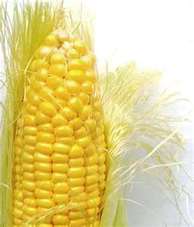"Four of the most widely consumed crops in the United States are commonly grown from genetically modified seeds:
21% of rapeseed 49% of cotton 77% of soybeans 85% of U.S.-grown corn
Critics of GMO farming claim that these “transgenic crops” may cause a host of environmental and health problems, including the use of more pesticides than non-GMO crops.
If you prefer to limit your intake of these foods, consider these tips:
LOOK FOR THE PLU CODES ON PRODUCE STICKERS:
21% of rapeseed 49% of cotton 77% of soybeans 85% of U.S.-grown corn
Critics of GMO farming claim that these “transgenic crops” may cause a host of environmental and health problems, including the use of more pesticides than non-GMO crops.
If you prefer to limit your intake of these foods, consider these tips:
- - Buy organic produce and products (including cotton goods) when possible.
- - Especially avoid eating foods that contain non-organic corn and and soy.
- - Skip processed foods in favor of whole foods. (note cotton seeds, for example, are often used to make cooking oils and margarine.)
- - For cooking, use olive, coconut or peanut oil rather than canola oil (which is made from rapeseed).
LOOK FOR THE PLU CODES ON PRODUCE STICKERS:
- - A 4-digit number signifies conventional produce.
- - A 5-digit number that starts with 9 signifies organic.
- - A 5-digit number that starts with 8 was designated for GMO production, but is rarely ever used. For more information , visit www.nongmoshoppingguide.com.”


 RSS Feed
RSS Feed